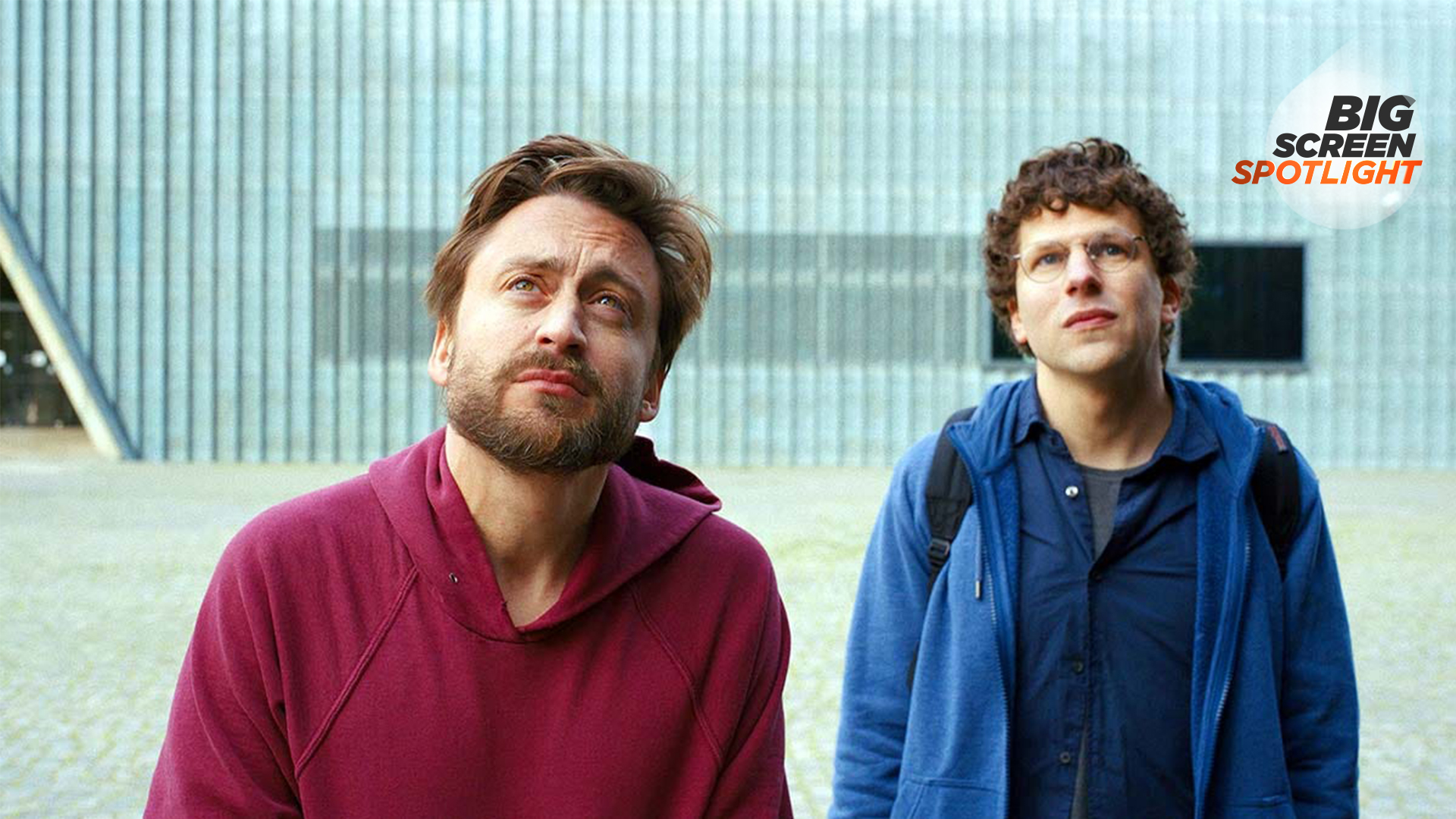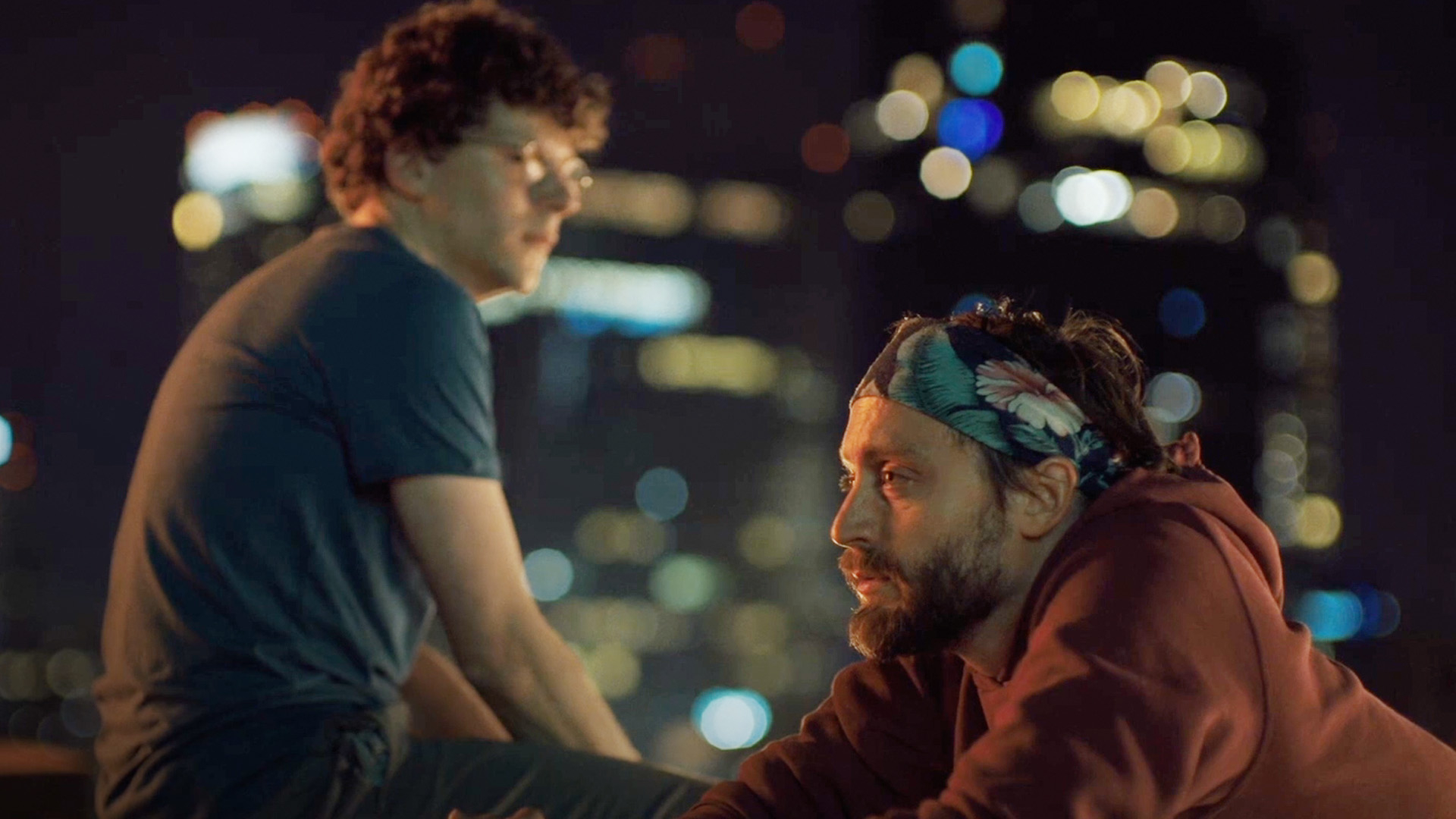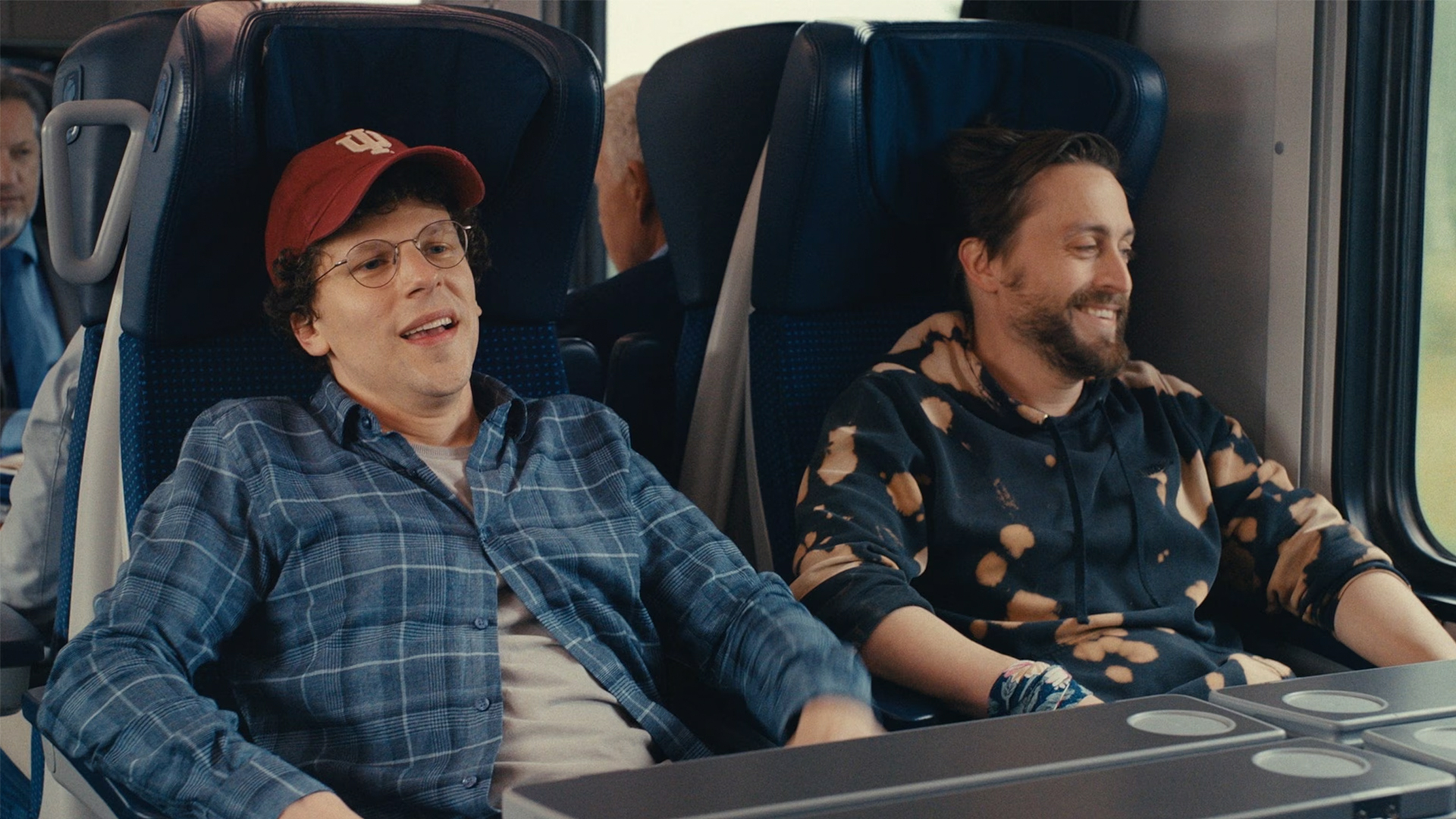Jesse Eisenberg and Kieran Culkin on their bittersweet new movie A Real Pain and resisting advice from "a big Hollywood director" to "make a billion dollars" with a happy ending
Big Screen Spotlight | The duo discuss their beautifully bittersweet road movie A Real Pain, which is already a favorite this awards season

Watching A Real Pain, which is already proving to be a favorite this awards season, it's hard to picture any other actors in the roles of Benji and David, two mismatched cousins who reunite for a tour through Poland to honor their late grandmother.
Awkward, diligent, and anxious, Jesse Eisenberg is the quieter cousin David who withholds his emotions, politely and unnecessarily apologizing if he feels he has overshared. At the other end of the scale is Kieran Culkin's Benji, an immediately charismatic presence who wears his heart on his sleeve, so much so that he's incredibly volatile. The perfectly cast pair make for a quintessential double act, with Succession star Culkin rightfully taking home the Golden Globe last weekend for Best Supporting Male Actor for his exceptional, emotional performance.
Shining a light on the under-the-radar theatrical releases that you need to know about, with a new article every Friday
However, as Eisenberg tells GamesRadar+, the duo would have been very different had he stuck with his original plan of playing Benji, not David. The writer/director, who delivers a superb sophomore feature with A Real Pain, pictured himself in the role whilst penning the screenplay before changing his mind. But had Eisenberg played Benji, would Culkin have considered portraying David?
"No, I would not know how," the actor confesses, even though we remain unconvinced given how talented Culkin is. Eisenberg seems to be with us on that as Culkin adds: "I said that to you [Eisenberg] once and you were like, 'What does that mean? That's the easy part'. But I would have no idea how to play that guy."
Pushing Culkin on the idea of him playing David, Eisenberg asks his co-star whether he would ever consider swapping roles for a charity reading. But even with that, Culkin isn't sure he could pull it off: "A reading?! I wouldn’t know how to do it. You set it up and I'll pass on it."
Uncovering generational trauma

Watching the pair warmly bicker with each other does capture the same feeling the movie itself delivers, as A Real Pain sees the cousins squabble their way across the country – sparring with both words and love. It's a funny watch but also a poignant one too, as the duo uncover their pain and generational trauma, attempting to open themselves up to their ancestors' history on a Jewish heritage tour.
One of the most powerful moments of the movie sees the tour group visit the site of a concentration camp, walking the halls in silence. It's a striking scene and one made even more so given it was filmed at the Majdanek State Museum, a real-life death camp where approximately 360,000 people were murdered – the gas chambers and more unsettlingly remaining intact.
Sign up for the Total Film Newsletter
Bringing all the latest movie news, features, and reviews to your inbox
Majdanek has been approached countless times by filmmakers wanting to shoot there but has always said no, unless it’s for a documentary or a news team. So, why make an exception for Eisenberg and A Real Pain?
We were just going in there and experiencing it in real-time as the characters. We often wouldn’t walk into a room until the camera was set up. I thought that was a respectful way to shoot it.
Kieran Culkin
As the filmmaker explains to us, it took time to convince the museum that his mission statement with the movie aligned with theirs: "It was an amazing privilege to shoot there. It took a long time to negotiate with them, to express what I was trying to do, which was to show this place as it is now, see a tour group go through it. Essentially, that's their mission statement too, showing the place as it is now, explaining to people. In my case, it's for a movie audience and in theirs, it's tourists."
To achieve this, Eisenberg didn’t start rolling the cameras until the cast stepped into a room at the museum for the first time, capturing their initial reactions to it in character.
For Culkin, he appreciated this approach: "There was no scene work or anything like that, it wasn’t like a set. We were just going in there and experiencing it in real-time as the characters. We often wouldn’t walk into a room until the camera was set up. I thought that was a respectful way to shoot it."
The museum clearly both agreed and was impressed, with Eisenberg telling us that they have now opened the site up to more people online: "I just heard that they’re now on Google Street View so you can actually see more online, which is great because the important thing is that people see this and understand that this happened."
header

Following this profound visit to the concentration camp, David and Benji depart from the tour group to head to their last stop: their grandmother's former home in Poland. Wanting to pay respect to their late grandma, they place a rock each at the front door, a nod to the Jewish tradition of placing a stone on someone's grave.
However, the tender moment is interrupted by a frustrated neighbor from across the street telling them to remove the stones, saying it’s a "hazard" for the person who lives there now. Their spirits dampened, the pair pick the rocks back up and head to the airport to fly home.
It’s a heart-wrenching moment, but A Real Pain is a beautifully bittersweet movie with the very last scene being the epitome of this. Despite reconnecting on this journey, nothing really has changed in the pair’s relationship as, once home, Benji refuses an invitation to David's home for dinner. Instead, he lingers alone at the airport wanting to put off a return to his mother’s basement and directionless life, whilst David rejoins his family at his apartment which lies in the heart of the hustle and bustle of New York City.
It's a perfect ending for the movie, but you can't help but want to yell at Benji, “go home with David,” as he rejects the invitation. As GamesRadar+ tells the pair this, Culkin exclaims that he feels the same way, interjecting: "I had that on like the third time I watched it. By that point I was like, 'Oh, come on, say yes to that, just go for dinner'."

Despite it being a fitting conclusion, was Eisenberg ever tempted to lean into these desires, delivering a happier ending where Benji says yes to the invitation? Despite a "big Hollywood director" telling him that this would instantly help A Real Pain make more money at the box office, for Eisenberg, this was never an option.
As he concludes: "This is a story about how people change and evolve, and the way history changes and evolves. So they are trying to connect to their Polish history but have an almost impossible time doing so. In fact, when they finally get to the house of their family they’re told that they actually don’t belong here, and should take the rocks and go. It’s the same thing with personal relationships, as at some point the thing that you want from the other person is not going to be the thing they’re giving you.
"That’s what this movie is bittersweetly about. They’re going to love each other forever but they’re probably not going to be as close as they have been. That’s what the feeling of this movie is and it’s a bittersweet ending, but I guess that’s my take on life, which is there’s a kind of bittersweetness to things. I think we would have made a lot more money if Benji went home with him. I was told by a big Hollywood director if you want to make a billion dollars, have him go home at the end. But I was like, I don’t think I want to make that."
A Real Pain is out in UK cinemas and US theaters now. For more on what to watch, check out the rest of our Big Screen Spotlight series.

Emily Murray is a former Entertainment Editor of GamesRadar+, once responsible for overseeing all the online content for Total Film and SFX magazine. Emily has previously worked for the BBC, Zavvi, UNILAD, Yahoo, Digital Spy and more. When Emily isn't writing about film and TV, she can be found cuddling her cat on the sofa, likely bingeing New Girl for the millionth time (Nick Miller is the love of my life). You can also find her waxing lyrical about Christopher Nolan on a podcast dedicated to his filmography.


